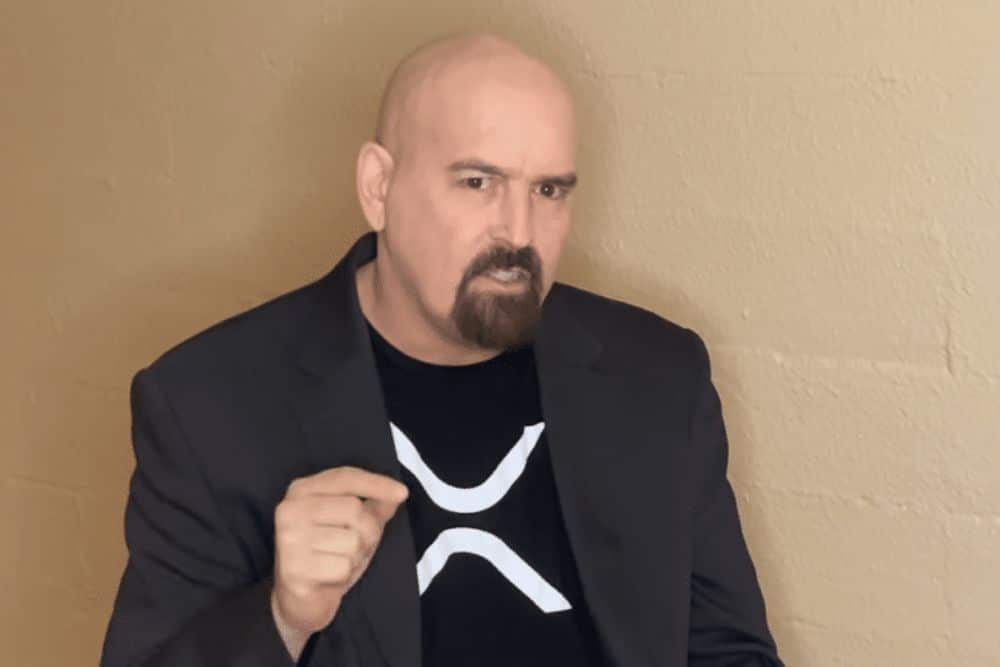Pro-XRP lawyer MetaLawMan praised Coinbase’s strong appeal arguments, noting it could clarify the SEC’s authority over digital assets.

Coinbase recently requested permission to file an interlocutory appeal with the 2nd Circuit in a response to the court. Notably, the pro-XRP attorney MetaLawMan’s recent commentary on the development sparked the discussions.
The attorney lauded Coinbase’s compelling arguments in a recent X post, emphasizing the case’s potential to expedite crucial inquiries regarding the SEC’s jurisdiction over digital assets.
MetaLawMan commended the interlocutory appeal case presented by Coinbase’s legal team as being highly persuasive. He stated that the 2nd Circuit will inevitably hear the case regarding whether digital assets traded on exchanges qualify as securities.
However, the only uncertainties are regarding the timetable and the particular cases that will raise the issue.
Furthermore, he noted that interlocutory appeal petitions are seldom granted. In light of the substantial arguments put forth and the notable importance of the Coinbase case, expediting the process to the 2nd Circuit appears to be an especially viable option.
Furthermore, MetaLawMan underscored the critical nature of the matter at hand, which affects the entirety of the cryptocurrency sector.
In providing further clarification, Coinbase’s Chief Legal Officer, Paul Grewal, recently disclosed and emphasized the significance of their request. He elaborated that their appeal concerns whether the SEC may regulate transactions involving digital assets as “investment contracts” in the absence of a contractual foundation.
Furthermore, Grewal emphasized that the significance of this matter in the Ripple case was recognized not only by the SEC but also by the industry as a whole, which acknowledged its “substantial grounds for difference of opinion.”
Additionally, Grewal stated that Coinbase has consistently endeavored to obtain clarification from the SEC.
The company, meanwhile, sincerely engaged the SEC to discuss a viable regulatory framework for cryptocurrency innovation in the United States. According to Grewal, these efforts were greeted with opposition, shifting stances, and legal action from the SEC.
Coinbase’s application for an interlocutory appeal demonstrates its dedication to promoting transparency within the cryptocurrency sector and opposing what it considers to be the SEC’s excessive authority.
Grewal underscored the significance of this appeal not only for Coinbase, but for the 52 million American cryptocurrency owners and the entire cryptocurrency industry.
Furthermore, he highlighted that the House has acknowledged the necessity for unambiguous regulations, and Coinbase is pursuing an equivalent level of clarity via the judicial system. Notably, Grewal stated in his remarks that Coinbase is committed to resolving this matter regardless of the timeline.
Concurrently, he holds the view that safeguarding the digital asset industry against unscrupulous regulators and establishing transparent and functional crypto regulation are imperative for its long-term viability. The determination exhibited by Coinbase is indicative of the industry’s need for regulatory transparency and equity.
Nevertheless, the XRP attorney had anticipated that Coinbase would request a re-hearing in light of the recent U.S. SEC decision to classify Ethereum as a commodity.
Concurrently, there has been considerable discourse surrounding the correlation between Coinbase and XRP subsequent to the prominent cryptocurrency exchange’s declaration of re-listing the XRP token on its platform for New York users.
